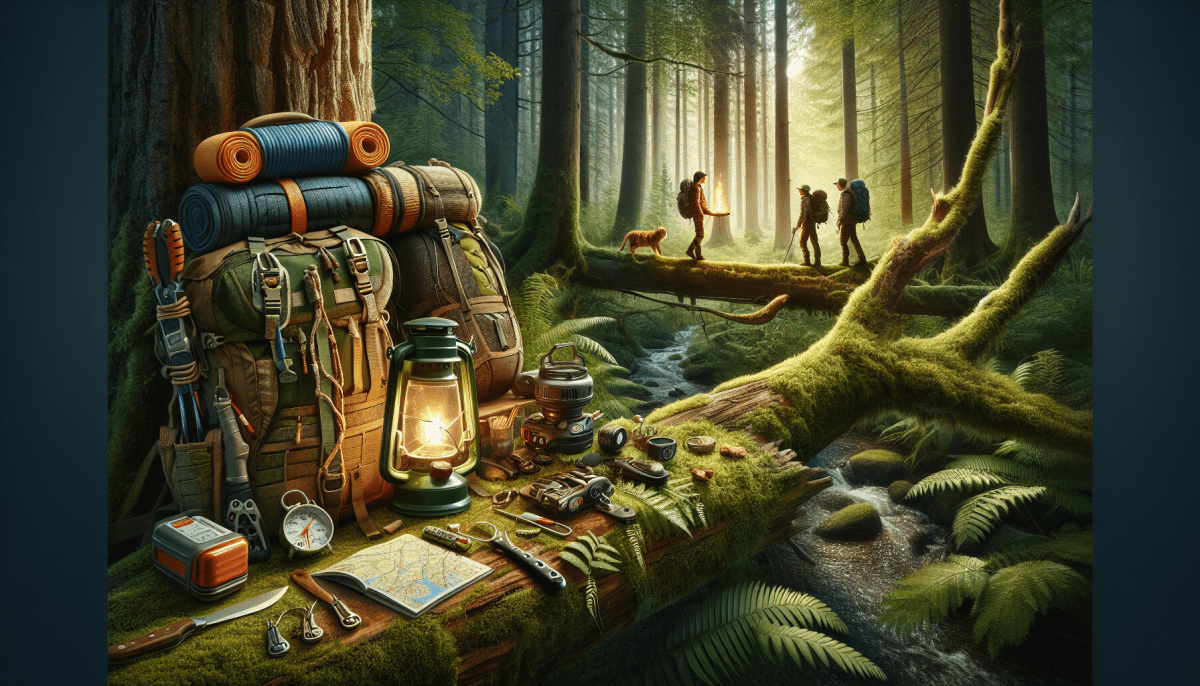When planning your camping trip, having the right gear is essential for a safe and enjoyable experience. Start with a reliable tent. A good tent not only provides shelter but also protection against the elements. Choose a tent that is easy to set up and fits the number of people in your group comfortably. Make sure to test it out before your trip to ensure you know how to pitch it correctly.
A sleeping bag is another must-have item. Look for a sleeping bag rated for the temperatures you expect to encounter. Lightweight and compact options are great for backpackers, while larger, more comfortable bags are ideal for car camping. Don’t forget a sleeping pad to provide insulation and cushioning from the hard ground.
Cooking equipment is also crucial for your camping adventure. A portable stove or grill makes meal prep easy and fun. Bring along some essential cooking utensils, pots, and pans, along with a cooler to keep your food fresh. Remember to pack enough water or a filtration system for safe drinking water during your stay.
Finally, consider your safety and comfort. A first aid kit is essential in case of minor injuries, and a good flashlight or headlamp will help you navigate after dark. Don’t forget the bug spray and sunscreen to protect your skin during your outdoor adventures. With the right gear, your camping experience can be not only enjoyable but also worry-free!
Choosing the Perfect Campsite
Next, accessibility is vital. Make sure the campsite is easy to reach, especially if you’re traveling with kids or older adults. Look for campsites that offer amenities like restrooms, water sources, and fire pits. Additionally, check if the area is pet-friendly if you plan to bring your furry companions along. Researching these amenities can save you from a lot of hassle once you arrive.
Another aspect to consider is the proximity to activities you want to enjoy. Are you interested in hiking, fishing, or simply relaxing by the campfire? Choose a campsite that’s close to trails, rivers, or other attractions to make the most of your time outdoors. It's also essential to check for any regulations or restrictions in the area to ensure your activities are allowed.
Lastly, examine the site’s terrain and conditions. Look for level ground, ample shade, and protection from wind. Avoid areas that are prone to flooding or bugs. A little research can help you find a campsite that balances comfort and adventure, allowing you to truly immerse yourself in nature.
Cooking Delicious Meals Outdoors
Start with the basics: pre-marinated meats, fresh vegetables, and easy sides. Skewers are a fantastic choice for grilling; just thread chunks of chicken, peppers, onions, or zucchini onto a stick. Toss them on the grill over hot coals for a quick and tasty meal. You can also wrap seasoned fish in foil with slices of lemon and herbs. Place the foil packet on the grill or directly in the fire's coals for a flavorful dish that requires minimal cleanup.
Dinners don't have to be complicated. Try making a hearty one-pot meal like chili using canned beans, tomatoes, and spices. Simply heat everything in a pot over your camp stove for a filling and delicious dish. Don't forget about breakfast! You can whip up scrambled eggs and sautéed vegetables in a skillet for a wholesome morning meal that fuels you for a day of adventure.
Finally, embrace the fun of outdoor cooking by experimenting with desserts. Pack items like pre-made cookie dough or ingredients for s'mores. You're camping—treat yourself! Being outdoors does not mean sacrificing great food; it means discovering new and exciting ways to enjoy meals in nature.
Safety Tips for a Great Experience
When you're heading out to enjoy the great outdoors, safety should always be your top priority. A little preparation can go a long way in ensuring a memorable and fun camping experience. Here are some essential safety tips to keep in mind before you embark on your camping adventure.
First and foremost, always inform someone about your camping plans. Share your itinerary, including your destination, expected return time, and emergency contacts. This way, if something goes wrong, someone will know where to look for you. Additionally, it's wise to carry a map and a compass or a GPS device, even if you're familiar with the area. Cell phone service can be unreliable in remote locations, so having a backup navigation method is crucial.
Next, make sure you're prepared for the elements. Pack appropriate clothing for changing weather conditions, including rain gear and sturdy footwear. It's also important to stay hydrated and bring plenty of water, especially if you're hiking or engaging in physically demanding activities. Consider packing a first aid kit that includes essentials like band-aids, antiseptic wipes, and any personal medications you might need.
Wildlife encounters are a possibility when camping, and knowing how to handle them can ensure your safety. Store food in bear-resistant containers and keep your campsite clean to avoid attracting animals. If you encounter wildlife, maintain a safe distance and never feed them. Understanding the local wildlife and their behaviors will help you stay safe and appreciate nature more fully.
Lastly, always practice campfire safety. Make sure your campfire is contained within a fire ring or pit, and never leave it unattended. Before going to bed or leaving your campsite, completely extinguish your fire using water or dirt. Following these guidelines will help you enjoy the beauty of nature while staying safe and secure during your camping trip.

